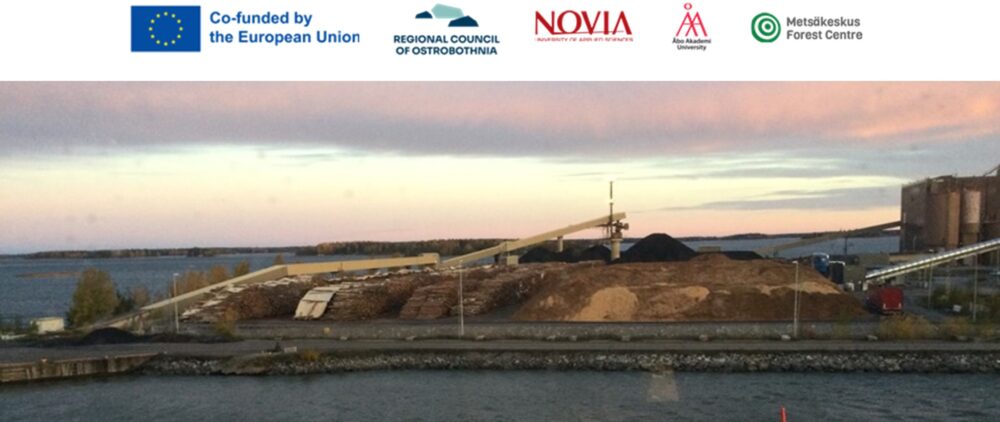Development of long duration storage of solid biofuels to enable a sustainable energy transition
An energy transition is underway, where the goal is for the energy supply to become at least carbon neutral. The traditional heat and electricity supply, relying on burning oil and solid fuels such as coal and peat, will have to be replaced with new carbon-neutral energy sources and energy production methods, including wind power. New long-term storage options for solid fuels must be developed in parallel.
The goal of the project SECURE-BIO-SUPPLY is to analyze what challenges and opportunities the change in long-term storage of fuels might create in Ostrobothnia. The development activities focuses on solid fuels that are stored for 3–36 months. Three traditional options are being studied: hard coal, energy peat and forest chips, as a description of the initial state of the energy transition. New possibilities are explored, e.g., wood (stem wood and thinning wood), pellets and torrefied material. The expected results describe costs, space requirements, different types of environmental impacts (including climate emissions) for different storage methods, as well as technical challenges and limitations in replacing one fuel with another. The research also gives suggestions for new development projects. The actual target groups are operators in Ostrobothnia who want to reduce or abandon the use of fossil fuels and peat in energy production or use.
The target group therefore includes power plants, heating plants, transport and logistics companies, forest owners, contractors. In particular, we want target groups that are interested in the design and future piloting/ presentation of new solutions. Indirect target groups are planners, district heating suppliers, municipalities, energy consumers and other actors who care about achieving climate neutrality, promoting local employment and maintaining local energy availability. Colleges and universities through the acquisition and transfer of knowledge, especially among those participating in the project. Decision-makers and authorities, both regional and national, get a better understanding of the problem area and its solutions when disseminating the project’s results.
The project also contributes to the development of more sustainable energy system solutions and improves the conditions to replace fossil fuels and peat in a sustainable and secure way. The research will give suggestions to new development activities and projects and will create a network of key stakeholders that enables further development of new system solutions and storage technologies. The network of actors created enables continued development of new system solutions and storage technologies.
